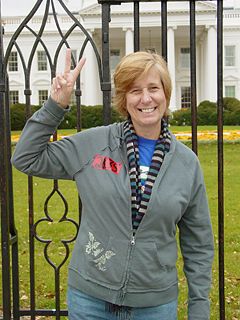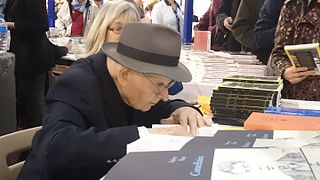A Quote by Frederick the Great
Theologians are all alike, of whatever religion or country they may be; their aim is always to wield despotic authority over men's consciences; they therefore persecute all of us who have the temerity to tell the truth.
Related Quotes
Religion, therefore, as I now ask you arbitrarily to take it, shall mean for us the feelings, acts, and experiences of individual men in their solitude, so far as they apprehend themselves to stand in relation to whatever they may consider the divine. Since the relation may be either moral, physical, or ritual, it is evident that out of religion in the sense in which we take it, theologies, philosophies, and ecclesiastical organizations may secondarily grow.
You may talk about religion and speak about the Gospel, and say we have got the truth and the plan of salvation, and we have got the authority of the Priesthood; but if we are not honest, it does not amount to anything; for neither God nor honorable men love dishonesty. We must, therefore, be an honest people.
Now, I appeal to the consciences of those that persecute, torment, destroy, and kill other men upon pretence of religion, whether they do it out of friendship and kindness towards them or no? I say, if all this be done merely to make men Christians and procure their salvation, why then do they suffer whoredom, fraud, malice and such-like enormities, which (according to the Apostle) manifestly relish of heathenish corruption, to predominate so much and abound amongst their flocks and people?
I've always believed that everything that is said from authority is either the authority of one's own heart, one's own brain, one's own reading, one's own trust, but not the authority of someone who claims it because they're speaking for God and they know the truth because it's written in a book. That, essentially, is where I come from. In a sense, tolerance is my religion. Reason is my religion.
And if we now cast our eyes over the nations of the earth, we shall find that, instead of possessing the pure religion of the Gospel, they may be divided either into infidels, who deny the truth; or politicians who make religion a stalking horse for their ambition; or professors, who walk in the trammels of orthodoxy, and are more attentive to traditions and ordinances of men than to the oracles of truth.
When the time of danger comes, all Americans, whatever their social standing, whatever their creed, whatever the training they have received, no matter from what section of the country they have come, stand together as men, as Americans, and are content to face the same fate and do the same duties because fundamentally they all alike have the common purpose to serve the glorious flag of their common country.
Religion is the only solid basis of good morals; therefore education should teach the precepts of religion, and the duties of man toward God. These duties are, internally, love and adoration: externally, devotion and obedience; therefore provision should be made for maintaining divine worship as well as education. But each one has a right to entire liberty as to religious opinions, for religion is the relation between God and man; therefore it is not within the reach of human authority.
Here is tragedy - and here is America. For the curse of the country, as well of all democracies, is precisely the fact that it treats its best men as enemies. The aim of our society, if it may be said to have an aim, is to iron them out. The ideal American, in the public sense, is a respectable vacuum.
Therefore, philosophy does not give sense in mind happiness. It keeps in mind the only truth. However, it is very possible that the truth may be painful, may be distressing, may be destructive of happiness or makes it impossible. Religion, unlike philosophy, is under the category of the useful one. It promises happiness and says what it is necessary to do and what it is necessary to be to deserve or to obtain it. Consequently, illusion is more important than truth if it gets happiness.







































